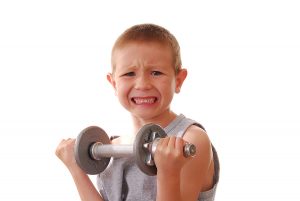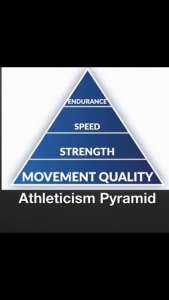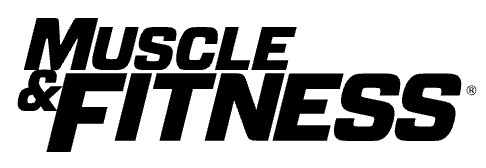How young is TOO young to strength train?
 Late March 2018. What a time to be alive. I tend to stray from hyperbole in my assessments of certain things, but for me, this age of humanity feels like the most polarizing in the history of our species.
Late March 2018. What a time to be alive. I tend to stray from hyperbole in my assessments of certain things, but for me, this age of humanity feels like the most polarizing in the history of our species.
Scientists are creating machines that are straight out of Star Trek, while flat earthers continue to peek their heads out from under a Bronze Age rug. In June, the wealthiest person on the planet, Jeff Bezoz, green lit a factory in Mobile Alabama, while the state itself was just dubbed as the poorest place in the developed world. Thanks to smart phones, all the information you could want is at your finger tips. Unfortunately, all the misinformation in the world is there too.
The opposite end of the spectrum phenomenon also exists in the world of strength and conditioning. Depending on the source, squats are both great AND horrible for your knees, carbs are essential AND the cause of all obesity related issues, and Olympic lifting is a tremendous OR fruitless power producer.
Of all these black and white declarations, one holds a special place in my heart and also makes me want to run into a brick wall- strength/weight training will stunt the growth of youth athletes. Le sigh.
The how, when, and why, of this frequently quoted proclamation remains fuzzy, but it shows no sign of slowing down any time soon. I speak with parents frequently (many that have been around sports their entire lives) and hear the same concern that somehow being around a dumbbell will turn their kid into a permanent member of the lollipop guild.

Quick! Get away from that medicine ball before this happens!
I’ll engage in the discourse, but it’s a tough conversation to have as it falls in line with the BS asymmetry principal. Meaning- the amount of energy needed to refute BS is a magnitude bigger than to produce it. Basically it’s easier to make stuff up than it is to dispute that made up claim.
I’m no physicist, but one most certainly has to take into account force and how it impacts the body. One of the key components of force is speed (mass times acceleration anyone?). The speed factor is hugely important because it determines just what kind of shock is being put into those developing growth plates.
A highly controlled, light weight movement (squat, push-up, pull up, it really doesn’t matter) will have infinitely less force on the frame than even basic jumping or running. Hell, jumping on a bed might have more stress on an 11 year olds frame than an 8 second negative goblet squat with a 10 pound dumbbell. Are we going to ban bed jumping in households across America for fear of stunting growth?

You kids are playing a dangerous game with your height
Strength training doesn’t even have to be weight lifting. Of course it eventually could be, but I need to see a movement look legit before even considering loading it. Master your own body first. Ultimately, if an athlete can’t move their body well it most certainly will be challenging to perform out there on the field of play.
Fundamental movement skills trump all. I have referenced the pyramid of athleticism before, but it bears repeating here as well. As you can see, the base of the structure starts with how an athlete moves. Think of the top players in professional sports, Serena Williams, Lebron James, Antonio Brown- all tremendous movers with great relative body strength.

Important to understand
Fredrick Douglas said it’s easier to build strong children than repair broken men. Well, it’s easier to learn how to lunge and run well when your nervous system is more malleable than to re-teach a pattern that is mechanically unsound or prone to causing injury.

This guy was on to something
Now, some pell mell, max effort, sloppy form, incarnation of a deadlift or squat could most certainly put some undue stress on a youth athlete. But, who in their right mind is doing that sort of intensity with that type of athlete? (Don’t tell me, I don’t want to know).
So what age to start? It depends. I think youth athletes can do some movement based training (learning to run, jump, and cut more effectively) as early as 8 or 9 years old. It really depends on their maturity level and attention span. I have had kids as young as 11 do more classical “strength” based training, using their own body weight. But again, it really comes down to if they can pay attention, enjoy it, and are able to work in a group. Moving better and getting stronger using a thoughtful approach won’t stunt your child’s growth. In fact, it will make the whole athletic experience more enjoyable for the child and set them up for future physical success.


